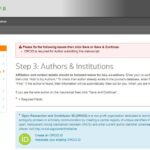Featuring the benefits of open data, why the public should be involved in scientific research and countries that are leading the way in open access publishing.
The benefits of data sharing via Nature
To make science more open and collaborative, journals, including Nature, are increasingly adopting policies that encourage or require authors to make their data available to other researchers. This article explores some of the benefits of data sharing and some of the reasons researchers may be reluctant to share their data. Although many scientists state that they support the principles of data sharing, they often do not commit to doing so. Early-career researchers worry about sharing data before publishing their research for fear of getting scooped. Those who wish to make their data accessible often feel overwhelmed and confused by the large amount of choice and lack expertise in data curation and metadata. However, the increasing benefits of data sharing could encourage more researchers to make their data publicly available. Data sets are becoming easier to cite and are accompanied by a digital object identifier that makes them discoverable. Citability allows researchers not only to gain credit for their data sets but also to use this as a measure of career achievement in job and grant applications. One suggestion to help promote the open data movement is to increase the recognition of the value of data sharing via incentive structures. Platforms that track data on the impact of research (e.g. Altmetric), are helping to lessen the influence of journal impact factors on assessing the productivity of researchers.
Public involvement in science via ORION Open Science
During a workshop at the Forum for Science Communication in Sweden, which takes place every year in conjunction with the International Science Festival Gothenburg, senior communication managers agreed that the involvement of the public is key to increasing the impact of research and trust in science. Imran Khan, Head of Public Engagement at the Wellcome Trust, discussed the Wellcome Global Monitor, which has surveyed over 140 000 people in more than 140 countries to gain insights into global attitudes towards science and major health challenges; its results will be released in June 2019. The findings of other similar surveys across a number of European countries were also discussed. These showed that, overall, trust in science and research remains stable, and that the public displays a strong interest in getting involved. Some suggestions from the workshop participants on how to achieve public involvement were to create arenas for connection between researchers and the public and to share with them how research affects society.
Indonesia: global leader on open access publishing via Nature
Heather Piwowar, co-founder of Impactstory, shared with Nature the preliminary analysis of her study, which examines the global number of free-to-read papers, such as preprints, and licensed open access publications. Although countries in Southeast Asia, South America and Africa produce less publishing output, they were found to publish the greatest proportion of their research papers open access. The study also showed that Indonesia is the world’s leader in open access publishing. Specifically, 81% of the 20 000 journal articles published by researchers affiliated with the country’s institutions in 2017 are available to read online for free, and 74% of them have been published under open access licences. The high scores in such countries have been linked to their having low-cost open access journals and websites, financial support from governments that encourage open publishing, and preprint servers.






